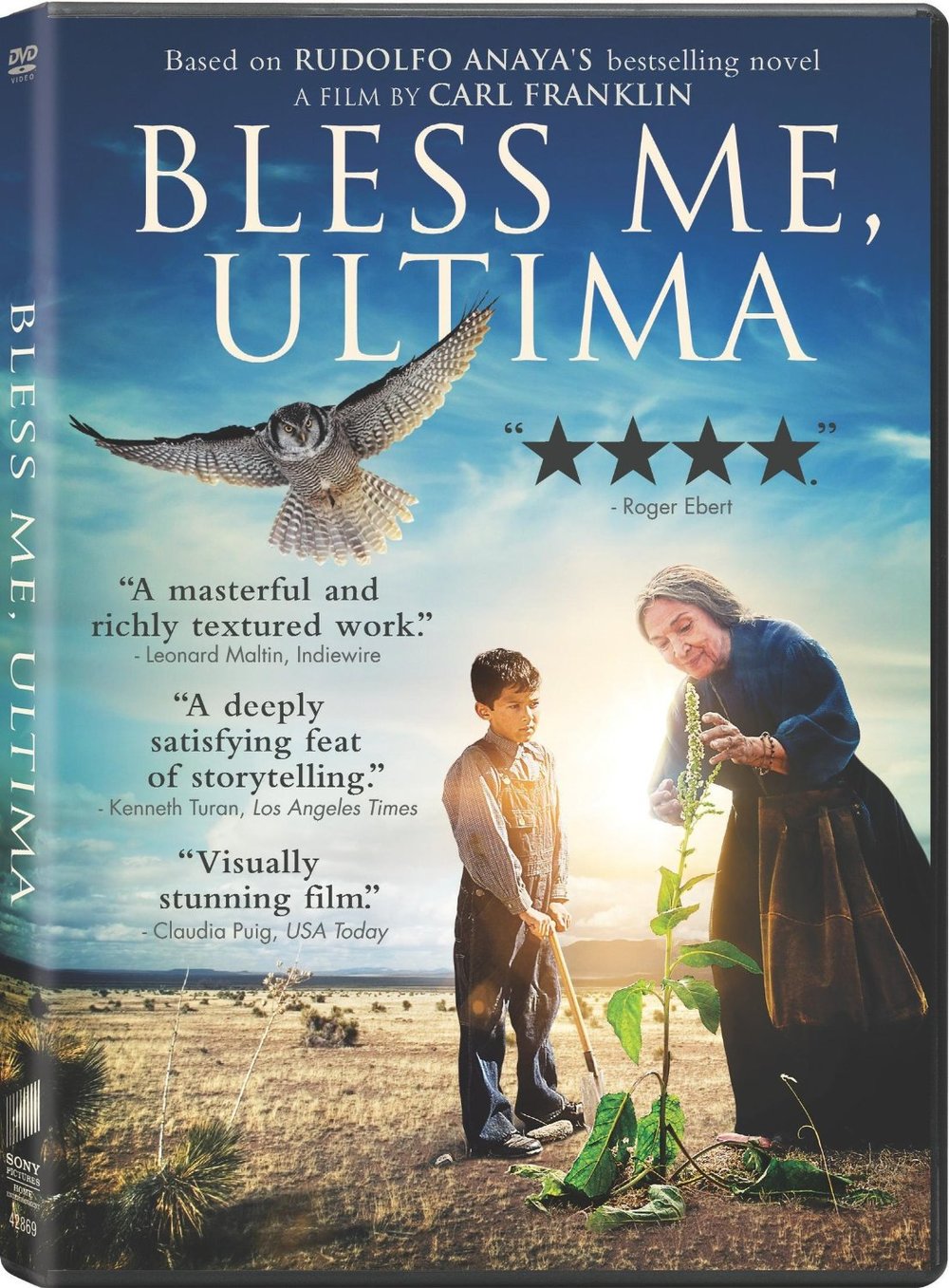Saturday movie review: Bless Me, Ultima
Like most movie lovers, I have a long list of must-see movies. As I seek a film to watch, I usually pluck picks from the top of the list, leaving many older films languishing at the bottom despite my once strong desire to see them.
Today I review one that's been on my list for quite a while and unfortunately sat near the bottom far too long. BLESS ME ULTIMA is based on the beloved to some, yet oft-banned, sometimes even burned book of the same name, written by Rudolfo Anaya. The book became an instant classic—and recipient of acclaim or admonishment—soon after publication in 1972. I never read the book, but I have heard positive things about it as well as the expansive, cinematic it inspired.

BLESS ME, ULTIMA reportedly stays true to the book, which tells the touching and often brutally honest coming-of-age tale of Antonio, a seven-year-old Latino boy living in New Mexico in 1944. Antonio lives with his parents and two older sisters, while his three older brothers have gone off to war. Antonio's father wants desperately to leave the hardscrabble farming life and desolate landscape of New Mexico and move to California once his adult sons return from the war. Antonio's mother, who comes from a long line of farmers—her farming family lives nearby—wants to remain near her family and hopes Antonio will one day become a priest.
Antonio struggles with the good and the evil he witnesses in his community, his family, his friend. He questions God and other forces that make people do what they do and be who they are. The film opens with the arrival of a curandero (a traditional native healer) named Ultima who will live out her final years with Antonio's family. Many in the community believe Ultima is a witch but Antonio quickly warms to the wise woman. His mystical experiences with her and the lessons she teaches him lead to more questions for Antonio about life and death, heaven and hell, good and evil.
BLESS ME, ULTIMA is one of those dramatic family sagas that introduce viewers (and readers) to a relatively unfamiliar culture, unforgettable characters, dilemmas they'll consider. Antonio epitomizes all that's good and the desire to be good. During the pivotal period of the film, he faces true evil as well as circumstances and situations that may simply be considered evil, depending on one's values and moral compass. The story highlights the gray areas of life and how one's perception and understanding of such forms their character.
Every cast member seems absolutely perfect for his or her role, each one real and believable. Luke Ganalon is the unquestionably good Antonio. Castulo Guerro is the unquestionably evil Tenorio. And Miriam Colon fully embodies magical, mystical Ultima, who teaches both Antonio and Tenorio—and others in the community—lessons that change their lives. Benito Martinez and Dolores Heredia shine as Antonio's compassionate yet often conflicted parents, Gabriel and Maria, who dare to allow Antonio to see life's evil and good and form his own understanding of both.
I adored Luke Ganalon in the film, and he seems equally charmingly mature in this interview, which also features Castulo Guerro (the evil Tenorio):
BLESS ME, ULTIMA (Rated PG-13 "for some violence and sexual references") opened in theaters in 2013 and is now available on DVD and some streaming services.